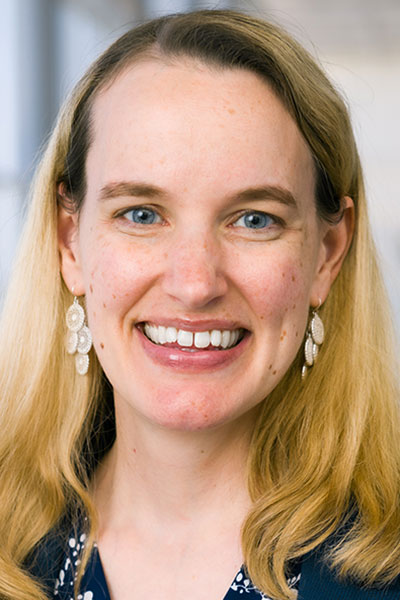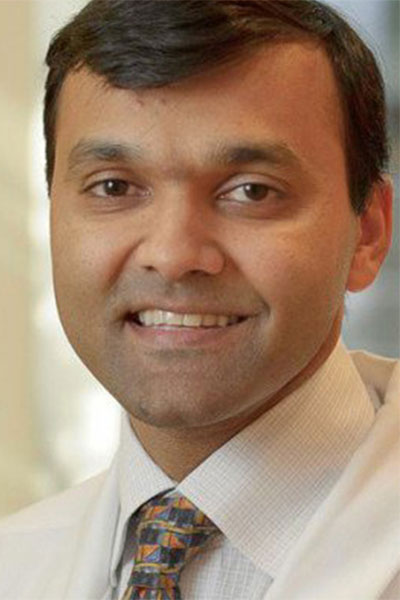DEMYSTIFYING CDKs IN BREAST CANCER: BEYOND CDK4/6
Thursday, December 8 • 2:00 pm – 3:00 pm CT • Stars at Night Ballroom 3&4

Presentation: CDK4/6 inhibitor resistance: Biological mechanisms and novel approaches
Ariella Hanker, PhD
Assistant Professor
Simmons Comprehensive Cancer Center, UT Southwestern Medical Center
Dallas, TX
What is your presentation about?
In my presentation, I will discuss mechanisms of resistance to CDK4/6 inhibitors (CDK4/6i) in metastatic ER+ breast cancer. Three CDK4/6i (palbociclib, ribociclib, and abemaciclib), in combination with endocrine therapy, are approved for first-line treatment of metastatic breast cancer. However, not all treated tumors respond to this therapy (intrinsic resistance), and the majority of those with an initial response eventually acquire resistance.
CDK4/6, in complex with Cyclin D1, promote cell cycle progression through the G1/S phase by phosphorylating Rb, allowing release of E2F transcription factors. In sensitive tumors, cell cycle progression and subsequent cell division is blocked by CDK4/6i, thereby preventing tumor growth. During the past few years, laboratory-based and clinical studies have elucidated a number of heterogeneous mechanisms that allow cells to escape CDK4/6i and continue dividing in their presence. These include alterations in cell cycle components, such as Rb and Cyclin E, as well activation of growth factor signaling pathways. I will also discuss potential strategies to overcome CDK4/6i resistance and highlight remaining challenges in understanding and overcoming resistance.
What makes this topic important in 2022?
CDK4/6i have revolutionized the treatment of metastatic ER+ breast cancer in recent years, delaying disease progression for years in some patients. However, eventually almost all tumors become resistant to CDK4/6i, and ER+ metastatic breast cancer remains incurable. A better molecular understanding of CDK4/6i resistance is needed to identify strategies to prevent or overcome resistance. Complicating this endeavor, recent studies have identified many different ways in which a tumor cell can escape cell cycle blockade induced by CDK4/6i.
How/why did you become involved with this area of breast cancer research or care?
I am interested in understanding genomic alterations that drive resistance to breast cancer targeted therapies. My expertise is in growth factor signaling pathways, which converge on Cyclin D1 and CDK4/6 to promote cell cycle progression. I have extensively studied HER2, PI3K/AKT, and MAPK signaling pathways, all of which have been implicated in CDK4/6i resistance. Several years ago, my research team began collecting tissues from breast cancer patients who have progressed on CDK4/6i to establish patient-derived organoids to serve as models for resistance. We hope that these organoids can be used to further illuminate mechanisms of resistance to CDK4/6i and identify biomarker-associated therapeutic vulnerabilities for CDK4/6i-resistant tumors, with the goal of improving outcomes for patients.

Presentation: Current status of CDK2 inhibitors in (pre-)clinical development
Sarat Chandarlapaty, MD, PhD
Medical Oncologist and Associate Attending Physician
Laboratory Head, Human Oncology and Pathogenesis Program
Memorial Sloan Kettering Cancer Center
New York, NY
What is your presentation about?
Translational research has demonstrated a key role for the CDK2 kinase in ER+ breast cancers that have developed resistance to CDK4/6 inhibitors. My talk will review how CDK2 function is induced in CDK4/6 inhibitor resistant cancers and the potential strategies for targeting CDK2 in this context.
What makes this topic important in 2022?
Resistance to CDK4/6 inhibitors is a growing entity in breast oncology as these drugs, while highly effective, are rarely curative. CDK2 represents a promising therapeutic target for overcoming CDK4/6 inhibitor resistance. Several novel and more selective CDK2 inhibitors are now in development, making their optimal use a particularly timely question.
How/why did you become involved with this area of breast cancer research or care?
My research group has been studying mechanisms of resistance to antiestrogens and CDK4/6 inhibitors for the past 7 years. Developing new approaches to overcoming resistance is a pressing need for our patients.

